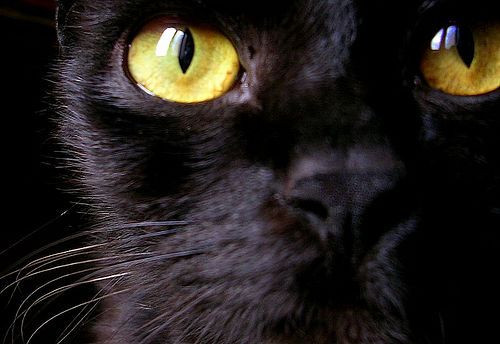Can Knocking On Wood Help Your Psyche? Superstitious Rituals May Reverse Perception Of Bad Luck

Knocking on wood is a popular ritual in Western culture as a way to fend off bad luck, or reverse a “jinx.” But these days, nobody really believes in such irrational notions, right?
A new study completed by the University of Chicago Booth School of Business, however, found that such superstitions do have an affect on people’s perceptions of bad luck or impending unfortunate events. It found that people who choose to make movements that exert force away from their bodies – like throwing salt, spitting, or knocking on wood – can create the sense that bad luck or misfortune is being pushed or knocked away.
The study, which was published in the Journal of Experimental Psychology in August, completed five experiments testing people to “tempt fate” and then make superstitious, avoidant actions (knocking down on wood, throwing a ball away from themselves). Researchers compared the results to participants who “tempted fate” and then were asked to engage in non-superstitious, neutral actions (for example, holding a ball rather than throwing it away from themselves). They found that the people who engaged in avoidant movements like throwing a ball away from their body were more likely to perceive a lessened negative outcome.
“We suggest that these rituals reduce the perceived likelihood of anticipated negative outcomes because they involve avoidant actions that exert force away from one’s representation of self, which simulates the experience of pushing away bad luck,” the study’s abstract states.
Psychological Effects
Does this mean that superstitious behavior, or “magical thinking,” could potentially have a positive effect on the psyche?
Though little is known about the benefits of superstition, a study completed by researchers in Germany looked to tap into that question. They found that “good luck superstitions” like saying “break a leg!” or keeping one’s fingers crossed could actually improve performance. The study reviewed increased performance in areas like golfing, motor dexterity, memory and anagram games.
“[T]hese performance benefits are produced by changes in perceived self-efficacy,” the study’s abstract states.
There is another side to superstitious behavior – and that is its connection to stress and a need for control. A study completed by researchers at Tel Aviv University attempted to analyze the link between superstition and a need for control in high-stress situations. It found that people under high-stress conditions were likely to “knock on wood” more than those under less stressful conditions. Whether performing these superstitious actions had any effect in lessening stress, has yet to be analyzed more thoroughly.
The interesting aspect of the University of Chicago study is its focus on avoidant movement and its link to perceived outcomes. “Our findings suggest that not all actions to undo a jinx are equally effective,” Jane Risen, associate professor of behavioral science at Chicago Booth, said in a press release. “Instead, we find that avoidant actions that exert force away from one’s representation of self are especially effective for reducing the anticipated negative consequences following a jinx.”
Published by Medicaldaily.com



























